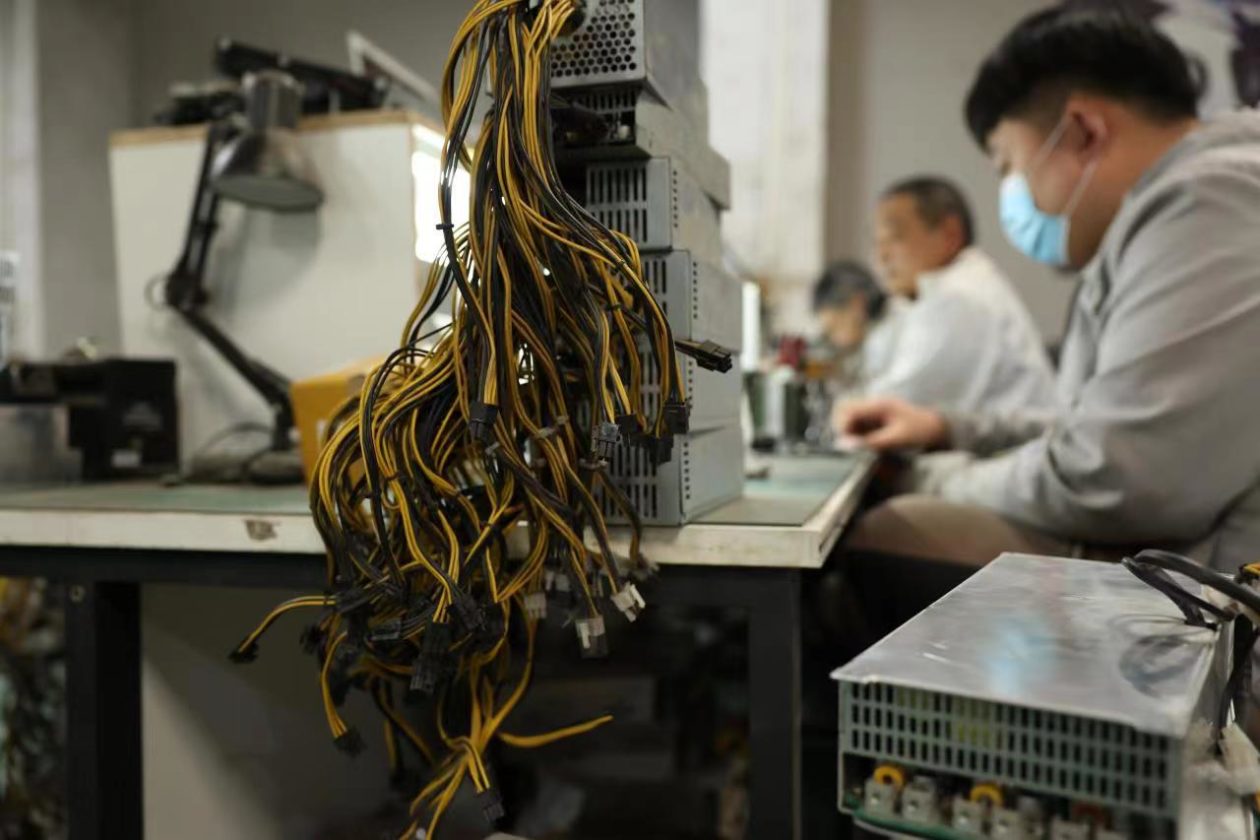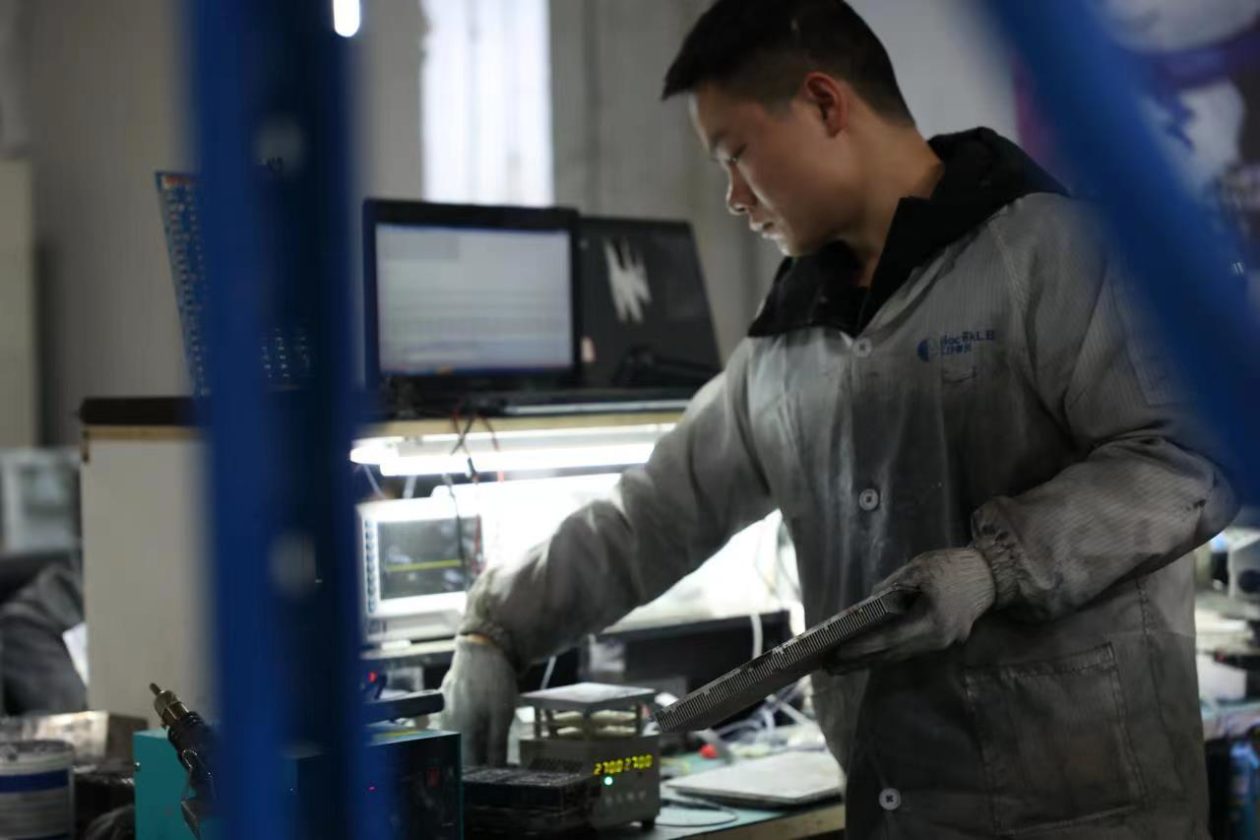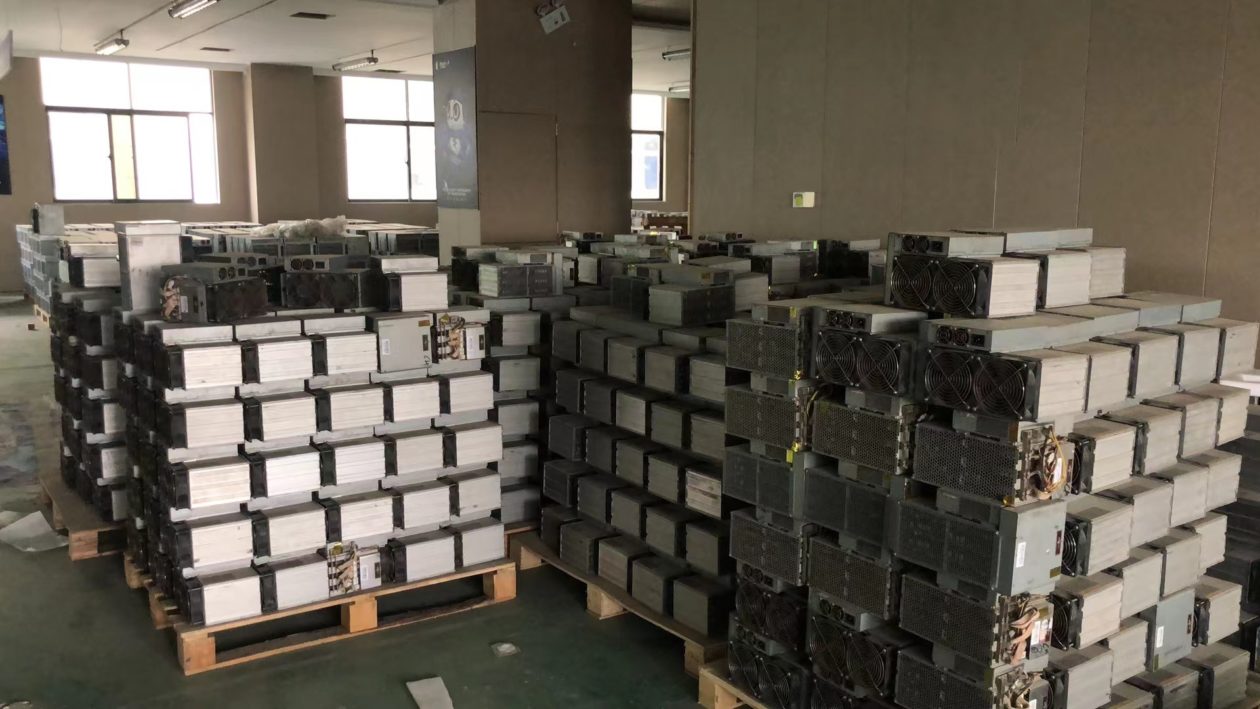This article is from forkast.news and the original article can be read here
Beijing’s decision to ban cryptocurrency mining in September last year looked to be the end for an industry where China led the world. Not so, it seems, as companies running the power-hungry computers used in mining are finding ways to evade the authorities.
“I still have over 20 mining machines scattered in five rural locations across China,” one Chinese crypto miner told Forkast in a Telegram call. He requested to use the pseudonym Lee to discuss his activities and declined to disclose the location of his operations.
Lee said he started mining in 2017 and later set up a Bitcoin mining company with a few partners, but when China cracked down last year, they moved the company’s machines to the U.S. and Canada. However, he kept his own equipment and runs it in rural areas to avoid the authorities.
Bitcoin “mining” is a metaphor for the use of networks of computers to verify transactions on the blockchain, for which miners receive Bitcoin. Beside income from the mining itself, the industry generates other substantial revenue streams, such as sales of the high-end computers used, known as rigs.
Meta-Luban, the largest Bitcoin mining rig repair company in China, “sold about US$1.5 billion worth of rigs last year, and plans to sell another $1 billion this year,” said Meta-Luban CEO Mark Zhou in an interview. The company lists annual revenue of US$2 billion on its website.
Zhou told Forkast that around 80% of his clients are from China but like Lee they’re mostly looking to move their company machines to North America, Central Asia and Africa.
Hash tracks
However, other evidence points to Bitcoin mining continuing in China. The so-called Bitcoin “hashrate” is a measure of the computational power being used by the network and can often be identified geographically.
China’s Bitcoin hashrate share plummeted after the crypto crackdowns first began in May 2021, but it surged right up again in September, suggesting “significant underground mining activity has formed in the country,” according to the Cambridge Centre for Alternative Finance (CCAF).
In January this year, China controlled 21.1% of the global Bitcoin hashrate, to become the second-largest Bitcoin producer, trailing only 37.8% in the U.S., the CCAF said.

The People’s Bank of China is one vocal opponent to cryptocurrencies, arguing that they create economic instability and facilitate financial crime. Other commentators have said the central bank is more worried about crypto encouraging capital flight from China and posing a threat to plans to launch a digital currency of its own that it will control.
Another argument against the miners is the computers they use consume enormous amounts of electricity and as this is generated mostly by fossil fuels in China, it undermines the country’s carbon neutrality goals. Miners have pushed back that they often use surplus electricity generated by renewable energy sources.
Chinese authorities have taken various approaches to identify and bust hidden mining operations. They have looked at unusual electricity consumption and computer IP addresses associated with mining pools to locate mining farms.
Cat and mouse
But such measures have their limits.
“When the ban first came out, I was extremely nervous,” Lee said. “But after discussing with some other industry players, I decided to move my machines out from large mining farms,” he said, adding that it took him less than a month to settle his rigs in new locations in rural areas.
“One way for us individual miners to continue mining in the dark is to find houses in rural areas and put only a few rigs in a single household to keep the power consumption within a certain range,” Lee said. “It’s just like home-mining.”
To stay below the government’s radar, Lee said he uses virtual private networks, a means to keep his rigs connected to the internet, while obscuring his location from the authorities.
Lee said some miners still operate in factories, such as metal processors, and buy excessive electricity consumption from the plants. “Many machines are still in operation, mostly in Southwest and Northwest China,” he added.
“Of course I still have concerns, but it’s very unlikely for all my rigs to get busted,” Lee said.

Gustavo A. De La Torre, an operations and marketing manager at Bitcoin mining pool BTC.com, told Forkast that he’s “happy to see Chinese miners still flourishing under a governmental ban.”
De La Torre said that BTC.com doesn’t require users to submit know-your-customer information, giving access to miners regardless of their geographical status.
An official at an overseas Bitcoin mining company, who declined to be identified to discuss the situation in China, told Forkast that they still work with Chinese miners.
“The ban is circumvented through various techniques by both the miner and the mining pool,” the official said. “Some of these techniques include transport layer security from miner to pool. Others include private proxies with encryption technology created by the mining pool development teams.
“It’s a cat-and-mouse game. When something is found to be no longer useful they go on and update it or change it,” the official said, adding that mining bans just don’t work as “many would risk possible prosecution to continue confirming transactions, building blocks and securing the network for the reward of Bitcoin.”
Heading offshore
While some crypto mining operations have gone underground in China, many other companies are relocating their machines overseas.
Mark Zhou, the head of Meta-Luban, said he has about 100 engineers at repair centers in Southwest China’s Sichuan province and the southeastern city of Shenzhen, and they handle about 20,000 mining rigs a month. But most of the equipment is destined for other countries, he said.
“The Chinese mining projects we know, including ourselves, are mining overseas,” Zhou said.

Zhou said miners relocating to North America want new higher-end machines, while those going to Central Asian nations such as Uzbekistan and Kazakhstan would prefer second-hand rigs.
Trading favors
Bitcoin miner Lee said China’s business practice of guanxi (the culture of trading favors and leveraging relationships) plays a part when it comes to local governments busting mining projects.
“My first reaction when I learned about the ban was that this would all be about playing ‘guanxi,’” Lee said. “Whoever has better ‘guanxi’ or stronger networks could stay.”
Lee said that before the mining ban kicked in, many local governments worked with miners to earn extra money that would go into government coffers.
In November, Xiao Yi, a former provincial-level official in the southeastern province of Jiangxi, was removed from office and expelled from the Communist Party after he was accused of abusing his power to support crypto mining activities.
In March, the country’s anti-graft watchdog warned that authorities are keeping a close eye on possible corruption behind underground crypto mining. It noted that some public servants use state resources to mine crypto.
Chinese regulators tend to first take a “one-size-fits-all approach” when they rein in an emerging sector, and subsequently make adjustments to relax certain rules, Lee said.
“Generally I’m not as pessimistic about the outlook of the industry as how the media have depicted,” Lee added. “It’s impossible to ban all operators.”
Disclaimer: This article is for informational purposes only. It is not a direct offer or solicitation of an offer to buy or sell, or a recommendation or endorsement of any products, services, or companies. EmeringCrypto.io does not provide investment, tax, legal, or accounting advice. Neither the company nor the author is responsible, directly or indirectly, for any damage or loss caused or alleged to be caused by or in connection with the use of or reliance on any content, goods or services mentioned in this article.
